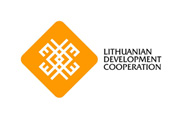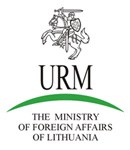The Kremlin controls Donbas – and with it, Ukraine
Speaking to the joint session of the two houses of the French legislature on Monday, French President François Hollande reaching out to Russia to join the global coalition to defeat ISIS. After the Paris terrorist attacks on 13 November, President Vladimir Putin is edging closer to re-integrating Russia into international decision-making, without compromising his conservative, authoritarian agenda, which originally led Moscow to support Bashar al-Assad. Putin’s return to the big table of international politics bodes ill for Ukraine and Russia’s other neighbors.
Some Russian commentators, like Sergey Markov, a political analyst close to the Kremlin, spoke on the day after the Paris attacks of the “need to urgently end the conflict between the West and Russia over Ukraine.” Moscow hopes – and Kyiv fears – that this logic would encounter little opposition in the Western capitals, shaken by the attacks in Paris.
The recent days saw a worrying rise in violence in Ukraine’s eastern provinces. But the military threats remain relevant; they seem to be increasingly relegated to a supporting role in Russia’s toolbox of influence on Ukraine. As Moscow consolidates its hold in the breakaway Donbas region, economic levers and political destabilization increasingly become the choice tool of pressure on Kyiv.
Hundreds of thousands of jobs in Ukraine, mostly in the Dnepropetrovsk, Zaporozhye or Mariupol regions depend on the Donbas coal mines and steel industry. Many factories are owned by Rinat Akhmetov, the richest man in Ukraine, who has walked a fine – and self-interested - line between Kyiv and Moscow during this conflict. “That is why Moscow never thought about subjecting Donbas to the same fate as Crimea. Russians needs to keep the region within Ukraine, formally at least,” explained a security officer now serving the Donetsk People’s Republic (DPR) speaking to us on condition of anonymity a year ago.
The tactics that are used in Donbas are familiar with the Kremlin tactics of “support” to the breakaway regions in Georgia (Abkhazia and South Ossetia) and in Moldova (Transnistria). This includes a gradual assimilation into Russia’s system of government through the enhancement of control over the regions’ security, economic, energy, and social spheres.
Control first – at a cost
To ready itself to a more flexible negotiating posture, Moscow first needed to consolidate its security and political control over the breakaway Donbas provinces.
The Donbas insurgency may have started with some people’s resistance, but it was promptly taken under control by Moscow. Boris Litvinov, the head of the local Communist party describes how it happened: “I was among the very few who led the movement at the beginning, and who had the idea to organize the self-determination referendum on 11 May [2014]. A few days before it, Alexander Borodai came to me, who introduced himself as a Muscovite, and asked if I was sure to win the referendum. I said yes, but he hardly believed me. After the referendum that we won with almost 90 percent of the votes, he came back and asked who will lead the government. I answered ‘me’, but he said no. Why? I asked, ‘because Moscow recommends so,’ he replied.” Litvinov accepted this “recommendation”. “We couldn’t continue without Moscow’s support,” he explains. Borodai became the DPR’s ‘prime minister’, until August 2014, when Moscow thought it was time to, formally at least, hand the power to locals.
Thousands of army men and heavy military equipment has arrived in Donbas since the summer of 2014. While the assistance was welcome, the accompanying transfer of authority to Kremlin protégés went less smoothly, as many fighters and some pro-independence ideologists refused to be loyal to the Moscow-backed leaders, Alexander Zakharchenko in Donetsk People’s Republic (DPR) and Igor Plotnitski in Lugansk People’s Republic (LPR).
Moscow invested time and resources in building the authority and power base for Zakharchenko and Plotnitski.
“LPR leadership has been divided since the beginning. Now, the territory is more or less under Plotnitski’s control, but it was a difficult process. Some [field commanders] finally agreed to become loyal - as the Cossack leader of Stakhanov Pavel Dremov; others were pushed out of LPR – such as the chieftain of the “Don Cossacks” [based in Russia, but who played a considerable role in the Donbas] Nikolay Kozitsyn and his lieutenants, yet others were killed like [Alexei] Mozgovoi last April,” recalls Yuli Fedorovski, a historian and LPR supporter, fine observer of the events that took place in the Lugansk region during the last two years.
The sidelining of the chief field commanders hostile to Moscow protégés at times turned violent. Right after the “election” of Zakharchenko and Plotnitski as heads of DPR and LPR, on 2 November 2014, Igor Bezler was taken out of Donbas by what was thought to be the Russian commando troops. Bezler was the self-proclaimed commander of Horlivka, a small city at the frontline with Ukrainian forces. “He didn’t want to recognize Zakharchenko’s authority. A Russian commando [team] kidnapped and brought him to Russia after an operation that took two months to prepare,” says our source among the DPR security officers.
Some removals were bloody. On 1 January, 2015, Alexandre Bednov, alias “Batman”, was killed in an operation led by Evgeny Wagner, according to various sources in Lugansk. Wagner is thought to be a Russian Ministry of Internal Affairs officer who was reportedly acting for Moscow to remove field commanders in the LPR opposed to Plotnitski’s authority.
Rebels grudgingly toe the line
By establishing firm security control over DPR and LPR, the Kremlin assured that the two provinces are pliable to Moscow’s tactical interests in its overarching conflict with the West.
“As early as in the summer of 2014, we observed that Moscow was not supporting the Novorossiya project [any more]. And many rebels reproached Putin and his advisor Vladislav Surkov for having let the [rebel] colonel Igor Strelkov be defeated in Slavyansk by the Ukrainian army,” says Alexandre Nikonorov, a Ukrainian political scientist studying the post-soviet separatist conflicts.
Today, those holding opinions similar to Strelkov make sure to tone down their criticisms of the Kremlin’s decision to abandon the “Novorossiya” project – an attempt to resurrect an imperial province of the 18th century, stretching from Kharkov to Bessarabia, via the Azov Sea littoral or Odessa.
President Putin’s photograph hangs on the walls of DPR and LPR officials alongside with the one of Zakharchenko or Plotnitski. Putin is the “curator-in-chief” of the DPR and LPR, the one who tells them what to do and what to say.
Vladislav Deinego, the chief negotiator for the self-declared Lugansk Republic told us “we want to continue the dialogue with Kiev in the frame of the Minsk agreements,” parroting the official Kremlin line in relation to agreements signed in September 2014 and February 2015 by the leaders of Russia, Ukraine, France and Germany. Still, Deinego spoke cautiously, knowing that what he said could irritate many in Donbas.
Last summer, Denis Pushilin, Deneigo’s DPR counterpart, was slammed by his comrades after he declared that “it is necessary to determine the status of Donbas through an amendment to the Constitution of Ukraine.”
Roman Manekin, a political commentator supporting the DPR, launched an online petition against Pushilin’s statement. In response, Manekin found himself locked up jail for a few days. “There, I met many fighters who are in prison for various crimes, but mostly because – in the end - there are against the Minsk agreement or because they are Novorossiya supporters,” he told us in Donetsk. Manekin says that “the people who are now leading the DPR came very late to support the idea of an independent Donbas, contrary to myself and Andrey Purgin, who is an early ideologist of the DPR. Now, I observe that the people who are bearing the legitimacy of our movement are brushed aside one by one.”
At the beginning of last September, Purgin, who was then Chairman of the DPR Soviet of People, was briefly detained before being eased out of office and replaced by Pushilin. “This is an example of how the people, who are not fully in line with the Kremlin are removed from DPR leadership. It also reflects the battle in Moscow among our ‘curators’ - Surkov and the Kremlin now support the Minsk agreements, and on the other side there are more hawkish people from the siloviki [law enforcement bodies],” says Manekin.
Litvinov, the head of local Communist Party, also revealed how he wrote a letter to Putin to ask him to provide qualified people to the DPR in security, administration and economy. This is how, according to Litvinov, Vladimir Antiufeyev, a Russian citizen who created the security services of the breakaway Moldovan region of Transnistria in 1992 and then led them for almost 20 years, arrived in Donetsk in July 2014 as vice prime minister in charge of security. He stepped down in September, only to leave behind three of his closest collaborators as ministers of security, internal affairs and social issues two months later.
The Kremlin’s corrupt, expensive friends
Since the beginning, Moscow used a group of volunteers, politicians, local elites and ideologists to establish control over the territory and build a proto-state of the DPR and the LPR. The flow of assistance still continues.
“There are dozens of consultants who came from Russia, from the FSB [former KGB], GRU [military intelligence] and other bodies to instruct and shape the local leadership. These people are not leaders, they are often more busy stealing money than creating a state,” says our source in the DPR security services.
The windfall oil revenues are a thing of the past. Corruption in Moscow’s tiny satellites is punching a hole in the Russian budget. It might be negligible compared to the graft on the state level, but ingratitude of the small allies irritates the curators, as the leaders of South Ossetia – subjected to repeated checks and government changes – know well. In Donbas as well, the curators take notice.
At the end of October 2015, the LPR ministers of security and of internal affairs aligned to jail their colleague Dmitry Lyamin, who was in charge of fuel, energy and the coal industry, and a man reportedly close to Plotnitski. “I don’t think that Paseshnik, the LPR Security minister, acted [in this affair] without the support of Moscow’s FSB. This story looks less like a putsch and more like the result of in-fighting among Russian curators, which may as well be because Moscow wants to restore order in the local budgets,” comments Yuli Fedorovski.
Far away from Paris or Raqqa, the ability of Russia to achieve its strategic objectives is also decided in the Soviet-looking cabinets of the republics that exist only in the Kremlin’s grand design.
Régis Genté is based in Tbilisi, Georgia. He has been covering politics in the post-Soviet space for Radio France Internationale (RFI) and Le Figaro since 2002.

 RSS
RSS Mobile
Mobile Twitter
Twitter Facebook
Facebook



